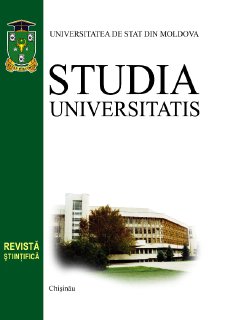FITOREMEDIEREA TERENURILOR POLUATE CU PLASTIC NERECICLABIL
Serghei CORCIMARU, Vasile TODIRAȘ, Svetlana PRISACARI, Ina RASTEMEȘINA Institutul de Microbiologie și Biotehnologie
Abstract
PHYTOREMEDIATION OF LAND POLLUTED WITH NON-RECYCLABLE PLASTIC The ability of soybean and vetch plants to stimulate the degradation of low-density polyethylene (LDPE) in soil was tested in the vegetative experiments under laboratory conditions. It was shown that the presence of LDPE strips in the soil had no toxic effects on both plants, and that, in the case of soybeans, it stimulated the plant growth. It has been shown that soybeans and vetch can stimulate the degradation of LDPE depending on the particularities of the soil and the presence of plant growth stimulating factors. The vetch plants were relatively more effective in stimulating the LDPE degradation under the conditions of the unpolluted soil, collected from the forest of the Orheidistrict. Soybean plants were relatively more efficient under the conditions of the polluted soil, collected from the landfill near Slobozia-Dușca, and caused the highest LDPE degradation (2.3% in 39 days) – in the variant with seed bacterization by Rhizobium japonicum RB-06. The ability to ensure a significant degradation of LDPE, under the toxic conditions of the real polluted soil, highlighted the perspectivity of soybean plants for the development of phytoremediation procedures of lands polluted by non-recyclable plastic and other contaminants. Keywords: low density polyethylene, LDPE, non-recyclable plastics, soil pollution, soil phytoremediation, soybeans, vetch, rhizobia.


